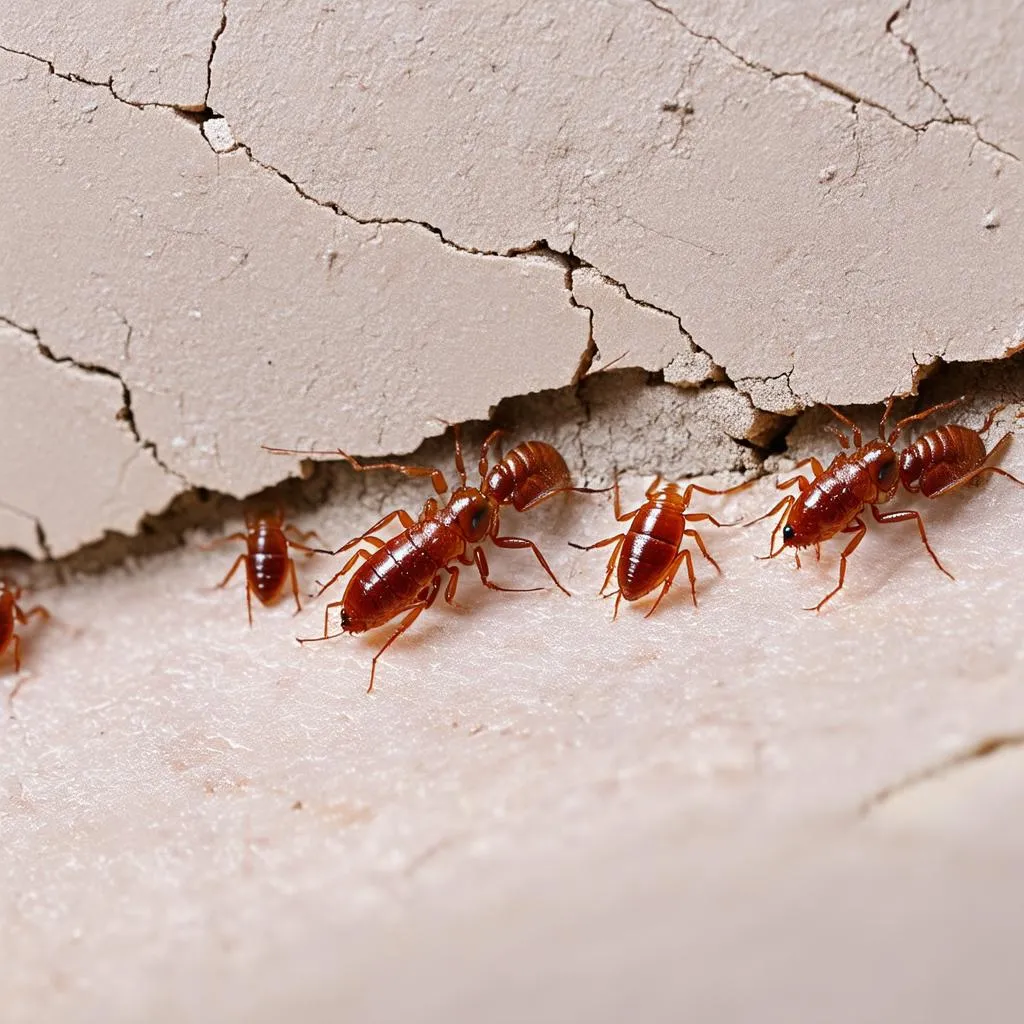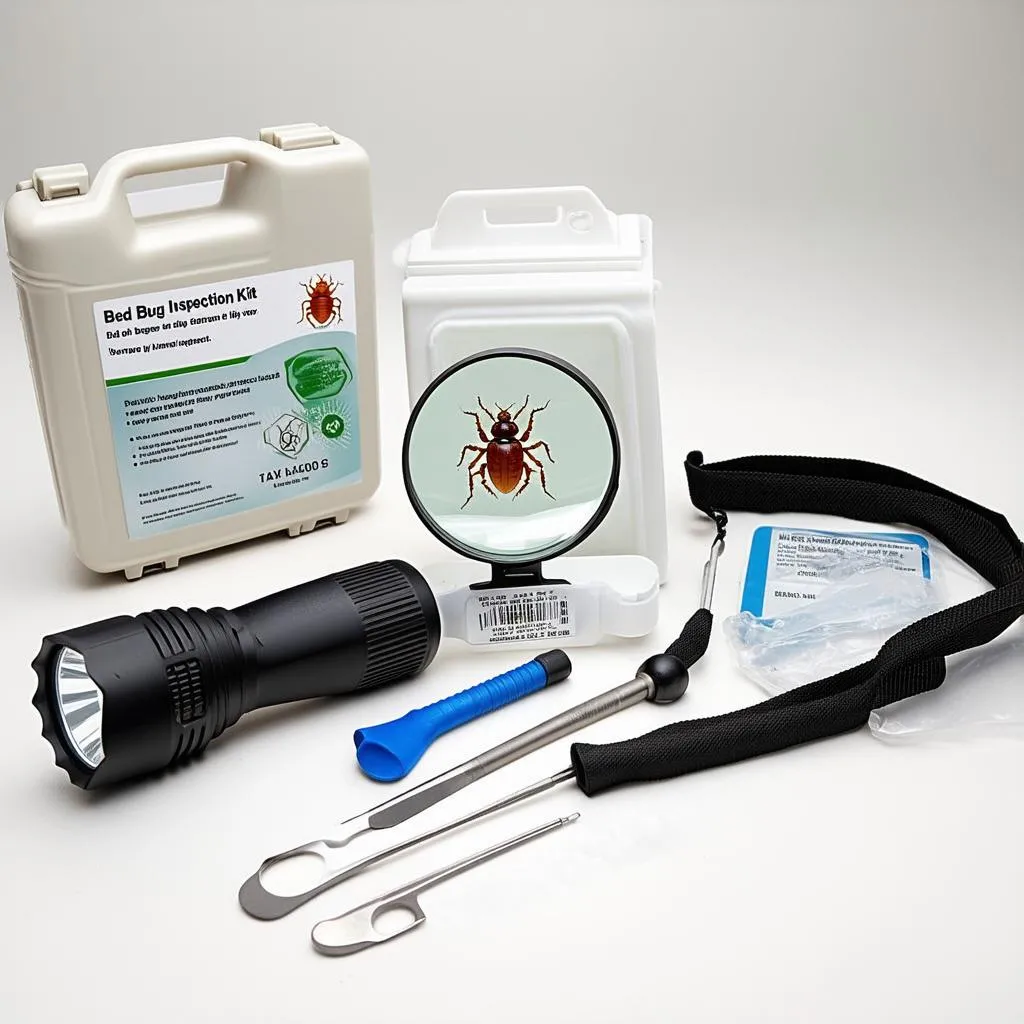Picture this: you’ve just settled into your new apartment in bustling New York City. You’ve explored Times Square, indulged in a slice from Joe’s Pizza, and are finally ready for a good night’s sleep. But then, the itching starts. You wake up to find tiny, reddish-brown bugs feasting on you. Bed bugs! Now you’re left wondering, “Could these critters have hitched a ride from a neighboring apartment?”
Unfortunately, the answer is a resounding yes. Bed bugs are notorious travelers, and apartment living can make it even easier for them to spread.
How Bed Bugs Spread Between Apartments
While they don’t fly, bed bugs are surprisingly mobile and resourceful. Here are some common ways they can migrate from one apartment to another:
1. Through Walls and Cracks: Bed bugs can squeeze through the tiniest cracks and crevices. Shared walls, electrical outlets, plumbing pipes – all these provide potential highways for these unwelcome guests.
2. On the Move: Bed bugs are experts at hitchhiking. They can stow away in luggage, furniture, clothing, and even on people themselves, unknowingly transporting them from one apartment to the next.
3. Secondhand Finds: That vintage armchair you snagged from a thrift store or the free couch left on the curb might come with an unwanted bonus – bed bugs!
4. Common Areas: Apartment buildings often have shared laundry rooms, mailrooms, or hallways. Bed bugs can easily hide in these areas, waiting to hop onto an unsuspecting passerby.
 Bed Bugs in Cracks
Bed Bugs in Cracks
Preventing Bed Bug Crossovers: Tips for Apartment Living
Don’t let the fear of bed bugs keep you from enjoying your apartment life! Here are some proactive steps you can take:
1. Inspect Before You Settle:
- Before moving into a new apartment, thoroughly inspect it for any signs of bed bugs. Look for small reddish-brown spots (bed bug droppings), shed skins, or live bugs themselves.
- Pay close attention to mattresses, bed frames, furniture, carpets, and baseboards.
2. Be Mindful of Shared Spaces:
- Avoid leaving luggage, clothing, or bags on the floor in shared laundry rooms or hallways.
- If possible, transport laundry in plastic bags and wash it immediately upon returning home.
3. Secondhand Smarts:
- Be cautious when bringing secondhand furniture or items into your apartment.
- Inspect them thoroughly or consider having them professionally treated before bringing them inside.
4. Create a Barrier:
- Seal any cracks or crevices in your apartment, especially around walls, floors, and baseboards, to minimize potential entry points.
- Use door sweeps under exterior doors and caulk around windows.
5. Stay Vigilant:
- Regularly inspect your apartment for any signs of bed bugs, especially after traveling or having guests over.
- Early detection is crucial for effective control.
 Bed Bug Inspection Kit
Bed Bug Inspection Kit
FAQs: Can Bed Bugs Travel Between Apartments?
Q: How far can bed bugs travel for a blood meal?
A: Bed bugs are creatures of comfort and prefer to stay close to their food source. They can travel up to 100 feet to feed, but most stay within a 5-10 foot radius of their harborage.
Q: Can I get bed bugs from my neighbors, even if they’re clean?
A: Yes, unfortunately. Bed bugs are not a sign of uncleanliness. They are opportunistic pests that can infest any home, regardless of how clean it is.
Q: My apartment building has a bed bug problem. What can I do?
A: If you suspect a building-wide infestation, it’s essential to inform your landlord or property manager immediately. They are responsible for addressing the issue promptly and effectively.
Explore More Travel Tips with Travelcar.edu.vn
For more helpful travel advice and information, visit TRAVELCAR.edu.vn. Planning a trip to Vietnam? Discover the ancient charm of Hoi An, explore the bustling streets of Hanoi, or relax on the beautiful beaches of Nha Trang. TRAVELCAR.edu.vn has everything you need to plan your perfect Vietnamese adventure.
Don’t Let Bed Bugs Ruin Your Journey
While bed bugs can be a nuisance, with a little awareness and proactive steps, you can prevent them from becoming an unwelcome travel companion. Remember, knowledge is power, and being informed is the first step in keeping these pesky critters at bay.